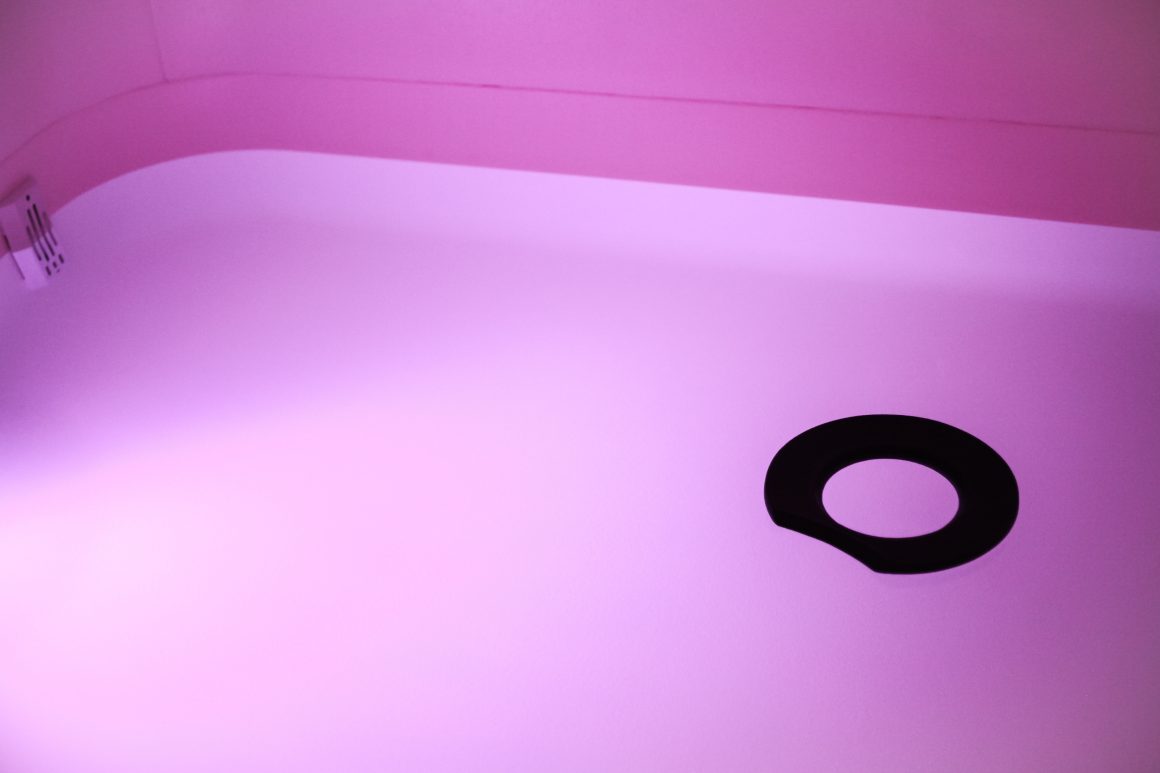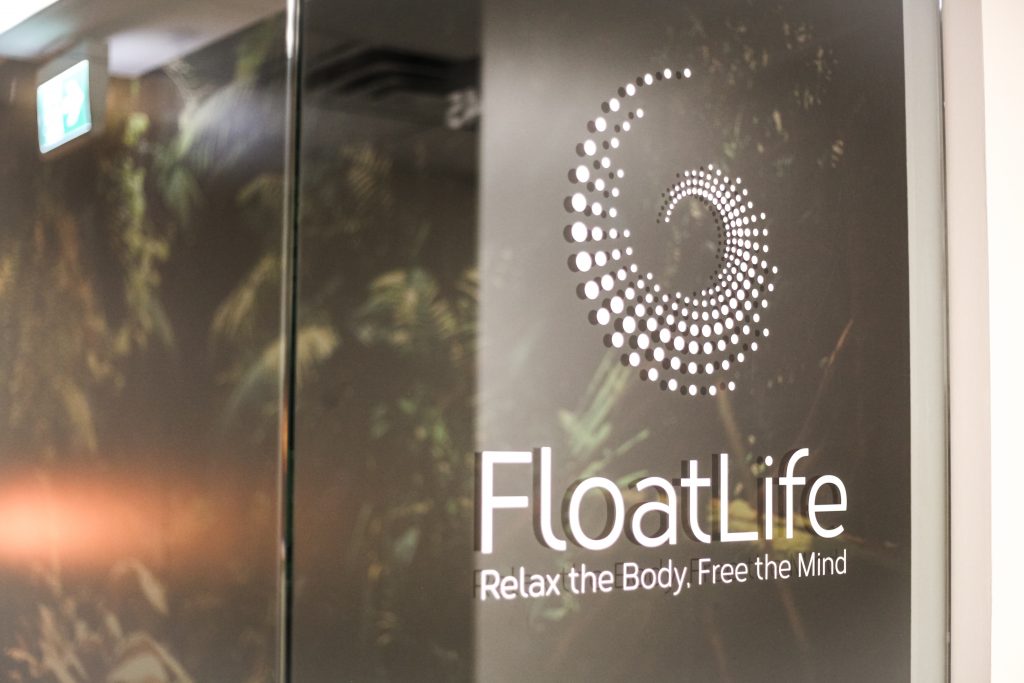
Float tanks provide relaxation, stress-relief
By Frankie Hart, April 23 2019 —
I try to slowly move my arms and legs into a more comfortable position, accidentally splashing some water onto my face and into my eye. Oh god. Oh god. It stings so bad. I squeeze my eyes shut and cautiously flip over, crawling on my knees with my arms outstretched for the door. After circling around the wall, I feel the handle and push it open. Light pours into the float room and I grab the face towel and press it to my eye. Suddenly, water from my hair drips into my other eye. I’m an idiot.
I’ve seen a lot of claims about the benefits of sensory deprivation tanks — everything from relaxation, meditation, hallucinations, spiritual experiences and combining the tanks with certain ‘substances’ to heighten the experience. FloatLife co-owner Dustin Ryan says floating is also beneficial for chronic pain.
“We have a lot of people that have sore backs, hypertension, people with fibromyalgia, arthritis,” Ryan said. “So just floating in magnesium, which is in the Epsom salts, can really provide a certain level of pain relief.”
He also emphasized that university students can benefit a lot from floating and from mindfulness in general.
“That’s why I think a lot of times people will go to the gym or go for a run in between studying for exams,” Ryan said. “It’s because it provides that certain level of mental clarity. But some people hate running, so there’s other things that people do, like read a fiction novel or something that kind of takes them out of their normal thought patterns. It can really help them to dig deep.”

Personally, I was interested in the general experience of sensory deprivation. I’m a nervous person, so I wondered how much floating in the dark would help me relax.
The room led into a changing area with a stool, some earplugs and some towels and then into a shower. I changed out of my clothes as swimsuits aren’t required for the tank. Before my pre-float shower, I rolled up the silicone earplugs and tried to use them to create seals on my ears to block out saltwater without getting them in my ear canals. I took a pre-float shower and then opened the door that was attached to the shower into the float room. Inside was a small room that glowed purple, filled with a couple of inches of water containing over 1,000 pounds of Epsom salts. There were controls on the side for light and music. I held the rail and carefully stepped in. Ryan had previously mentioned the salts made it a bit slippery.
After closing the door and lowering myself into the water, I decided to go for the full deprivation experience and shut off both the lights and music. I laid back into the water slowly, not fully trusting the water’s ability to hold me. After a few moments, I was able to release the tension and let it carry me.
The first thing I noticed was that I could hear my pulse in my ears. Hearing how fast my heart was beating wasn’t exactly relaxing, but I tried to focus on my breathing. I couldn’t help but shift uncomfortably in the water, trying to find a comfortable position to rest my limbs without them floating into a less comfortable one.
The second thing I noticed is that I was feeling a burning sensation on my arm. It’s discouraged to shave or wax to prevent irritation, but I had completely forgotten about the nervous itchy spot near my elbow. Luckily, the pain faded fast as long as nothing touched it.
The third thing I noticed was if I shifted around, I would create little waves in the room that would eventually carry me to bump into one of the walls. I couldn’t simply push myself off the wall, because it would only send me into another one. I had to attempt staying as still as possible in the middle of the room to prevent this. Even so, it felt like my body was floating in circles, causing me to panic and shift to prevent myself from possibly bumping my head into a wall. I’m still not sure if I was actually rotating then or not.
]I think I spent approximately the first half hour floundering around, bumping into walls, getting Epsom salt in my eyes, slipping and desperately pawing at the walls. Eventually, I was able to float still, letting my thoughts fly freely through my head. Then I fell asleep. Or at least I’m pretty sure I did, based on how the time passed.
At some point, I realized that my arms felt weird and sore because they were stuck in a bit of a strange position for a while. I tried putting them above my head instead and found that my arms were the source of most of my discomfort for most of the float. I stayed like that for what felt like 10 more minutes before the lights and music slowly came back up, indicating that my 90-minute session had ended.
In hindsight, I don’t think I was ready for the fully dark, no sound float experience. I wasn’t feeling claustrophobic or panicky, but it did take me a lot of time and effort to feel comfortable. Even just having the music on probably would have helped me not feel like I was lost in the middle of nowhere.
As for the experience otherwise, I think the mental benefits are probably similar to that of meditation as far as eliminating distractions. Sensory deprivation is probably even more useful to those that could use a more physical barrier from the outside world. I can definitely see myself trying another float the next time I feel really overwhelmed in the height of classes.
Hopefully next time I don’t get the water in my eyes, though.
